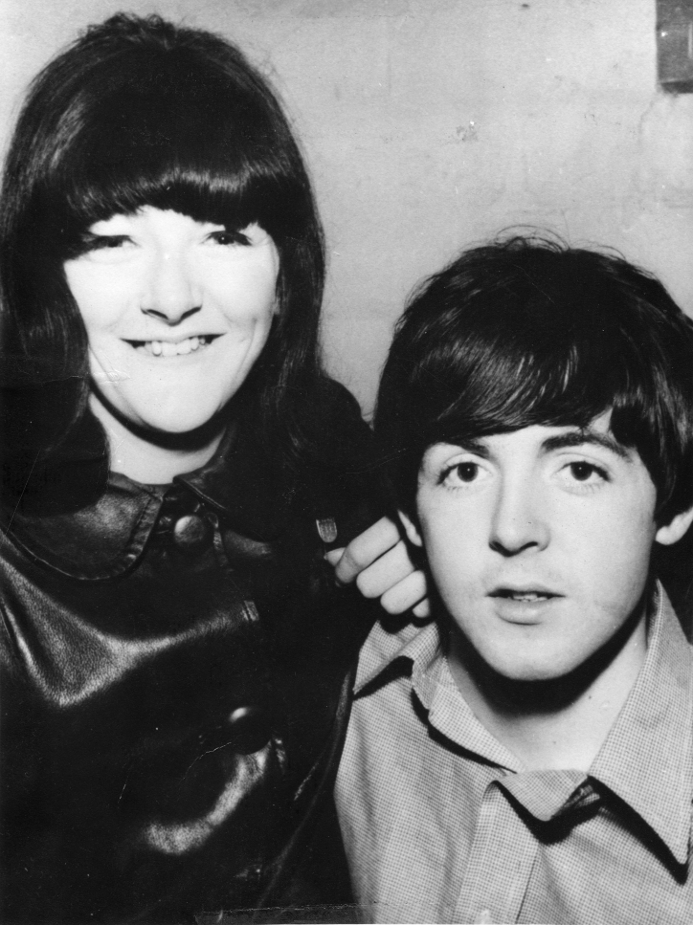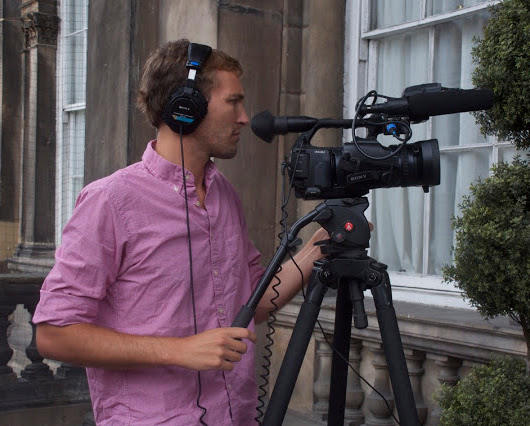
Freda Kelly, one of the last surviving members of The Beatles’ inner circle and the subject of a new documentary. (Photo by Austin Hargrave)
When Freda Kelly began her job as a secretary in 1963, the shy 17-year-old believed she was merely going to work in a cramped office. She couldn’t have known she was about to step into history.
Kelly was hired to work for an up-and-coming rock group based out of Liverpool, England, just a few months before that band would conquer the world. Freda had faith in her boys, The Beatles.
And The Beatles had faith in Freda: she managed the band’s fan club and served as the secretary for their Liverpool office, often working side-by-side with their manager Brian Epstein. She worked for The Beatles for 11 years, longer than the band was together. Then she faded into obscurity, loyally protecting the stories and people she kept close to her heart.
But now, after 50 years, Freda Kelly steps up to tell some of those stories in a new documentary, Good Ol’ Freda, which will make its world premiere this weekend at South by Southwest (SXSW) in Austin.
The film’s director Ryan White had an inside track to Freda — his uncle is Billy Kinsley, a founding member of the Merseybeats, which also came from the 1960s Liverpool music scene. ”I grew up going back and forth to Liverpool all my life,” says White. ”My aunt and uncle are very good friends with Freda.”
He spoke to us just as he completed a last-minute frenzy of finishing his movie before the trip to Austin. Even before its premiere, Good Ol’ Freda has received accolades that suggest this film may be something special. After Austin, the Rock and Roll Hall of Fame and Museum has dibs on a showing of the film in April during the Cleveland International Film Festival. The movie is also scheduled to be shown at the Atlanta Film Festival later this month.
Getting Freda to sit down for his camera was a bit of a coup for White, who admits he’s still amazed at the unshakeable loyalty and love this woman has for her former employers. ”She is simply a remarkable woman with a very remarkable story,” he says. ”For 50 years she has resisted numerous offers and even lots of money to do a tell-all’ book or film. She’s just that loyal and protective.”
So why did she decide to step before a camera now? ”Freda likes to say that she is living on borrowed time,” explains White, ”and she jokes that she can go at any moment. But when her first grandson was born I think she re-evaluated her life and decided this was something she wanted him to know about his grandmother.”
So White conducted 30 hours of interviews with Freda, and also talked to other surviving members of The Beatles’ inner circle: former press officer Tony Barrow, journalist Larry Kane and even Angie McCartney, Paul’s stepmother.
”Freda was really more than a secretary … she really became part of The Beatles’ family, and did so much for them,” says White. ”But she also did so much for the fans, on The Beatles’ behalf. She gave the fans personal attention, collecting autographs and even snipping little locks of hair to send off. She would get different Beatles to chew a bit of gum which she’d stick to a letter and send it off to some girl on the other side of the world.”
”Freda is amazing, and this story is a time capsule … a look into an era that will never happen again.”
Good Ol’ Freda takes its name from a recorded aside by one of The Beatles, likely John Lennon, in a 1963 Christmas recording sent to members of the group’s fan club. George Harrison thanks the people running the fan club by name, and when he thanks Freda the shout ”Good Ol’ Freda” can be heard in the background.
Of course White got the approval of The Beatles themselves, but in a very unique way. He asked to use some of the group’s songs in his film and approached the two surviving Beatles and the estates of Lennon and Harrison for permission.
The Beatles’ music is one of the most sought-after, and fiercely protected, catalogs in popular culture. The actual recordings have only rarely been licensed for use in movies or TV; when the show ”Mad Men” used a snippet of a Beatles tune in an episode last season, it cost the producers $250,000.
But White got permission to use four Beatles songs, including ”Love Me Do” and ”I Saw Her Standing There.” He won’t say how much he paid, if anything, for their use but consider this: the entire film was produced for around $58,000.
”It just demonstrates the respect that the living Beatles have for Freda,” White says. ”She never sold out the four guys … her story is a study in ethics and the meaning of true loyalty.”
White will be on hand to introduce his film to audiences at SXSW in Austin, and he is excited to share this moment with Freda herself, who will also go to Austin for the premiere. The director had to talk Freda into making the trip, not only because she is still a little shy … but because she also had to take time off. She still works as a secretary, for a law firm.
”It’s going to be a great moment,” White says. ”It will be fun to experience this alongside Freda.”







Comments